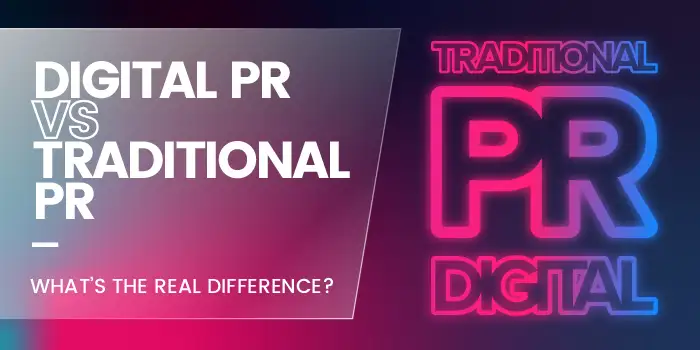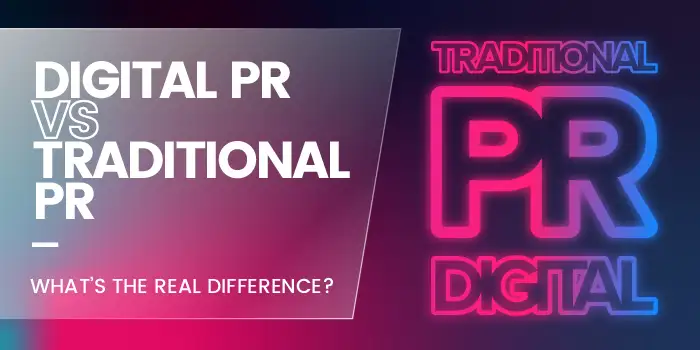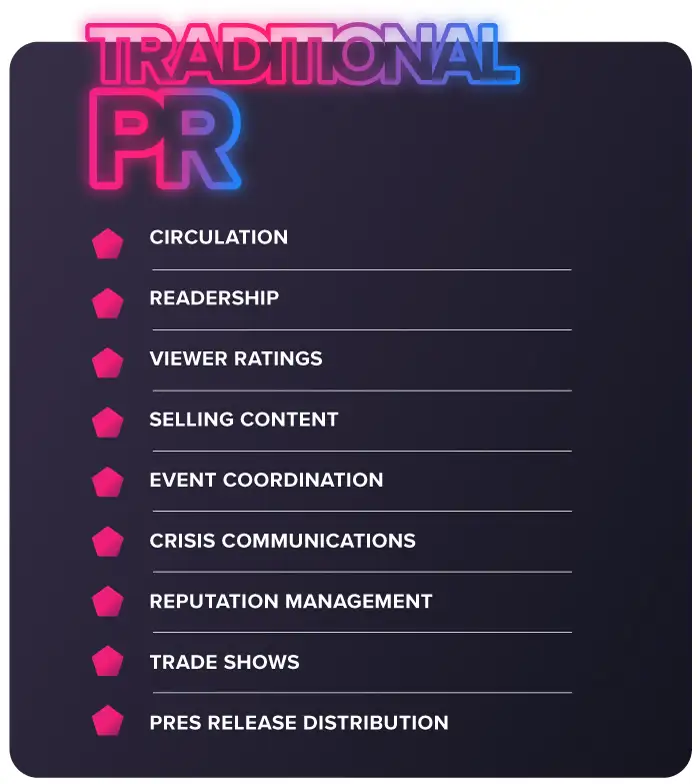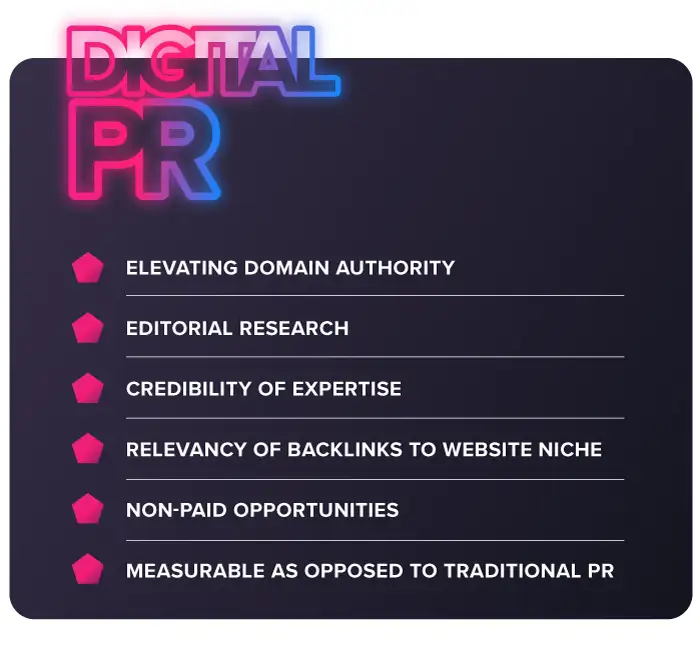
Digital PR vs Traditional PR – What’s the Real Difference?

Public relations in its simplest form has evolved drastically over the last few years, paving the way for SEOs and creative PR experts to merge; establishing the newly found online marketing strategy known as digital PR.
You only need to be reminded of Eddy, Ab-Fab's very own PR guru when you think of traditional PR. But the difference between digital PR and traditional PR couldn’t be more different.
Traditional PR would typically focus on print-based publications, radio, television and newswire services. But as the debate over whether traditional PR or Digital PR is the best tactic continues to intensify, there’s no question that digital PR experts have become a powerful force to be reckoned with. After all, in 2016, the Independent was the very first UK newspaper to strip its print editions and focus on going digital.
And so, it seems most digital marketers who provide digital marketing services, understand the core principles of traditional PR methods, thus creating a far savvier approach to producing the very best online content.
Difference between Digital PR and Traditional PR?
When you break it down, the end goal is somewhat similar – build brand awareness, engage with relevant audiences and demonstrate expertise. But it’s the way the goal is delivered that’s different.
Traditional PR focuses on:

Digital PR focuses on:

There are some fundamental differences as shown in the list between that of digital PR and what you would call traditional PR, but for purposes of this article, I want to discuss some of the most distinct tactics that makes digital PR stand out.

 Link Building: Relevance vs Authority
Link Building: Relevance vs Authority
In a recent blog post, I spoke about the power of link building and relevance vs authority – and which one you should be tailoring your PR campaigns to.
Truthfully, there’s no right or wrong answer. We know Google value backlinks to a website highly, as when a website links out to you, it acts as an instant signal of credibility and confidence – indicating to Google that the website trusts you and your authority. This trust may also signal authority for relevancy if the website has a similar topic interest, as found on Majestic SEO.
In a statement from Google’s John Mueller in 2019, he asserts:
And although links aren’t the only ranking factor, they do expose how prevalent a website is. In an ideal world, PR digital campaigns require a mix of authority and relevancy – the easiest way for Google to evaluate dominance.
Editorially earned backlinks is a crucial part of elevating organic search engine rankings, and if those links come from highly valued publications and the content is of a high quality resonating with a relevant audience, Google sees a lot more value in this digital PR strategy.
The main way most digital PR professionals like the digital PR team at Reboot build backlinks is creating authoritative editorial research, which stems from primary or secondary data and creating a press release and or on-site asset which directs journalists/readers to the source of information curated. This can include extra information, statistics and visuals. This is one of the most effective ways of earning a link to a client’s website.
It is the process of creating editorial and not advertorial content that differs from traditional PR.
Credibility of expertise
Where traditional PR utilises press release distributions for new product launches or news content, focusing on circulation, viewer ratings and readership statistics, digital PR amalgamates these traditional components; providing a whole new strategy of digital content geared towards the client’s area of expertise. You can view some of our case studies here.
Most digital marketers will be aware of Google’s guideline about E-A-T: expertise, authority and trustworthiness.
They are qualities a web page should have, but they’re not metrics or ranking factors. Earlier in 2019, Google updated their algorithms emphasising just how credible this process is to the SEO community. And although it’s more of an indication for on-site content, the principles apply to external link building techniques.
Relevancy and expertise sounds obvious, but you’d be surprised how many still place quantity over quality. If a media outlet perceives your content to be of interest, and their topical trust flow is of a similar category to the one you’re building content for, then Google is more likely to reward that link; especially if it has a Kosher link profile, high DA/trust flow. After all, it’s a win-win outcome for everyone!
How does Digital PR impact a business?
-
Builds brand reputation – although at the heart of digital PR is link building, mentions (without links) highlights a positive reinforcement. It means if anyone were to Google the brand, they would see useful, high-quality articles that are SEO driven in an organic way, indicating that your client is an authoritative source of information for their given field. Visit our links earned page to see just how much coverage our clients get from core niches.
-
Website traffic elevates – the more citations and backlinks your client receives from digital PR campaigns distributed, the greater the potential for website traffic. The more content that is read through a simple Google search or shared through social media, the more likely someone is to visit the site.
-
SEO and rankings improve – Although links aren’t the ONLY ranking factor, they are still incredibly important. If your content is published on high authority websites, whilst establishing niche relevancy, your website will naturally push up the rankings; overall improving your site’s SEO. This will be particularly true for targeted keywords.
-
Generates leads – If you have a strong digital PR strategy, the likelihood is that other companies interested in investing in such tactics will approach you to do the same campaign building.
